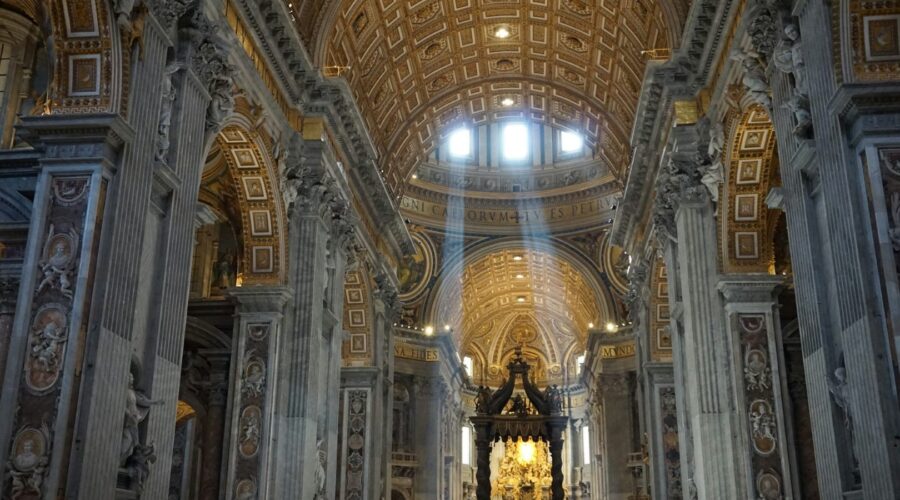Your cart is currently empty!
Coptic Christians: Unveiling the Rich History and Legacy of an Enduring Faith

Introduction
Nestled in the heart of Egypt, the Coptic Christian community stands as a testament to the endurance and resilience of faith. With roots tracing back to the apostolic age, Coptic Christianity embodies a unique blend of ancient traditions and modern-day relevance. This comprehensive guide delves into the rich history, beliefs, practices, and challenges faced by Coptic Christians today, offering a deeper understanding and appreciation for this vibrant and enduring community.
Historical Origins and Significance
Apostolic Foundation
Tradition holds that Coptic Christianity was established by the apostle Mark the Evangelist in the 1st century AD. According to legend, Mark traveled to Alexandria, a bustling port city in Egypt, and founded the first Christian congregation there. The Coptic Church claims Mark as its founder and patron saint, preserving his legacy as a pivotal figure in the spread of Christianity in North Africa.
Council of Chalcedon
In 451 AD, the Council of Chalcedon convened, resulting in a major schism within Christianity. The council condemned the teachings of Monophysitism, which held that Christ had only one nature (divine), rejecting the doctrine of Two Natures (divine and human). The Coptic Church, along with several other Eastern Christian churches, rejected the council’s decision, leading to their separation from the main body of Chalcedonian Christianity.
Persecutions and Resilience
Throughout history, Coptic Christians have faced periods of persecution. Under Roman rule, they endured severe oppression, including the martyrdom of numerous saints. Later, under Islamic rule, while initially enjoying relative tolerance, they faced periods of discrimination and persecution. Despite these challenges, the Coptic Church has remained steadfast in its faith, maintaining a strong presence in Egypt and beyond.
Beliefs and Practices
Monophysite Theology
The central belief of Coptic Christianity is Monophysitism, which holds that Christ had one divine nature, as opposed to the Chalcedonian view of Two Natures (divine and human). This belief distinguishes Coptic Christianity from other Christian denominations.
Liturgy and Sacraments
Coptic worship is rich in tradition and symbolism. The Divine Liturgy, known as the Holy Eucharist, is the central act of worship, with a complex structure involving prayers, hymns, and readings. Coptic Christians also practice seven sacraments: Baptism, Chrismation, Eucharist, Penance, Anointing of the Sick, Holy Orders, and Matrimony.
Saints and Icons
Coptic Christianity holds a deep reverence for saints, and icons (religious images) play a significant role in worship. Believers venerate saints as intermediaries between God and humanity, and icons are believed to express the presence and intercessory power of the saints.
Challenges and Contemporary Issues
Persecution and Discrimination
While Coptic Christians have enjoyed periods of relative stability in recent years, they continue to face challenges and discrimination. Sectarian violence, threats, and attacks on churches and individuals persist, highlighting the need for ongoing dialogue and efforts towards reconciliation.
Brain Drain and Emigration
Like many other communities, the Coptic Christian population has been affected by emigration. Seeking better economic opportunities and safety, many Copts have left Egypt, resulting in a brain drain and a decline in the community’s size and influence.
Modernization and Reform
The Coptic Church is navigating the challenges of modernity, including the rise of secularism and the influence of Western culture. While preserving its ancient traditions, the Church has also implemented some reforms, such as the use of Arabic in liturgy and the establishment of educational institutions.
Conclusion
The Coptic Christian community stands as a beacon of resilience and faith, having preserved its unique traditions amidst historical challenges and contemporary issues. Their belief in Monophysitism, rich liturgical practices, and devotion to saints continue to shape their identity and inspire their spiritual journey. Despite ongoing challenges, Coptic Christians strive to live out their faith in a changing world, contributing to the diversity and vitality of Christianity.
By understanding the history, beliefs, and challenges faced by Coptic Christians, we can foster greater appreciation for their enduring faith and the valuable contributions they make to the global Christian community.
**Additional Resources**
* [Coptic Orthodox Church of Alexandria](https://www.copticchurch.net/)
* [The Coptic Encyclopedia](https://en.coptic.net/index.php?title=Main_Page)
* [The Coptic Museum in Cairo](https://www.copticmuseum.org/)